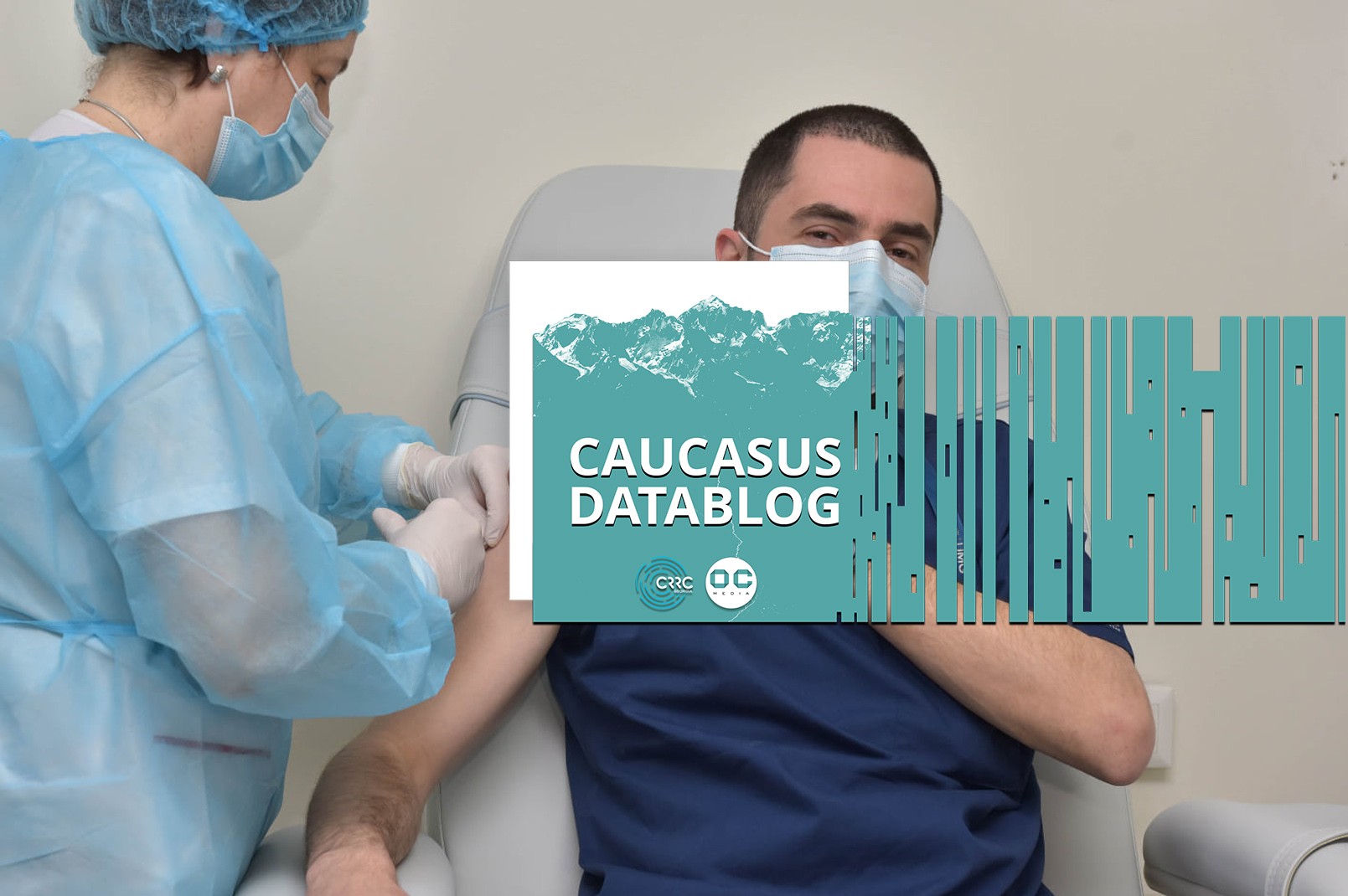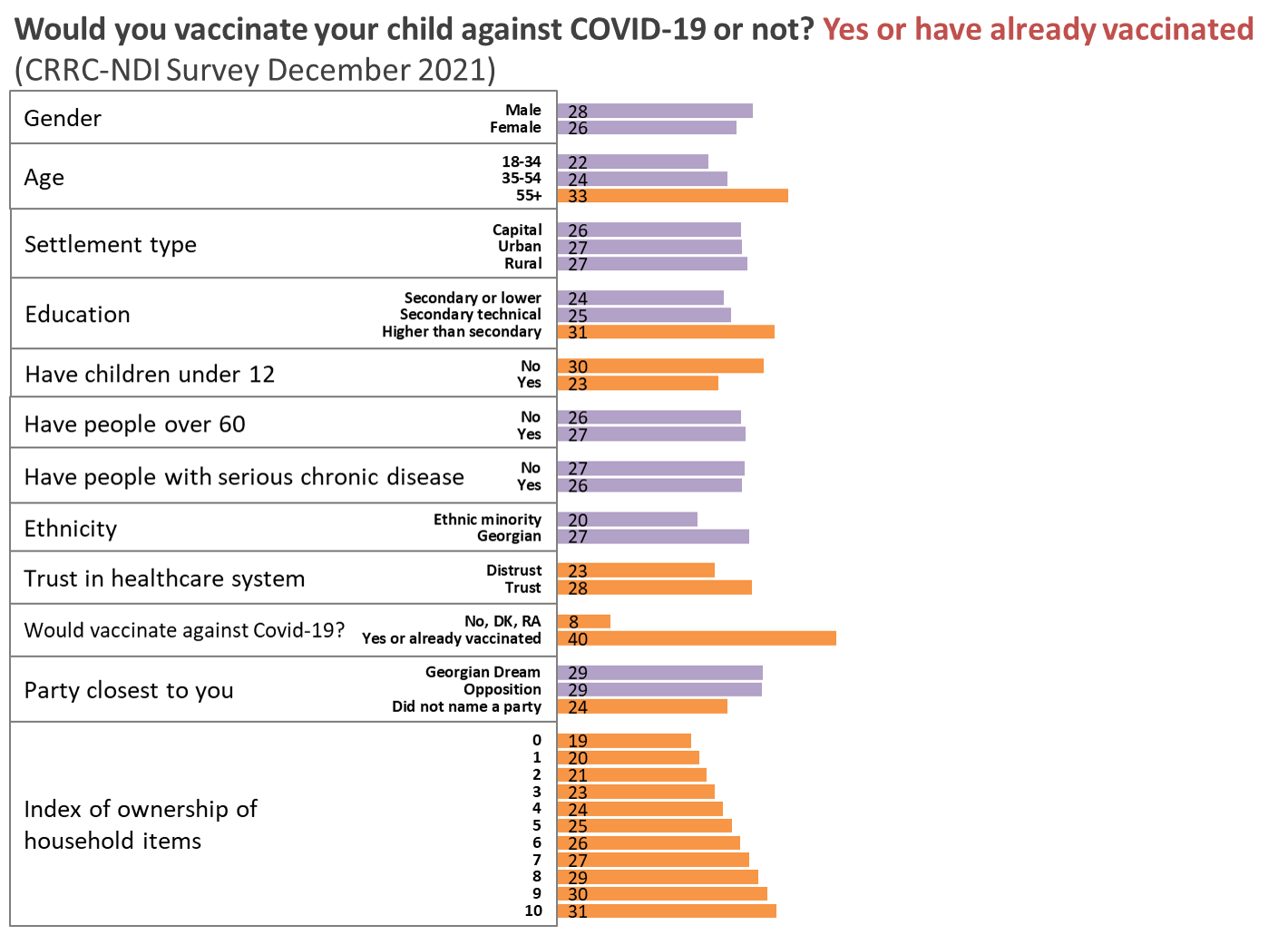
Data from the CRRC Georgia and NDI December 2021 survey suggest that even fewer people in Georgia are willing to vaccinate their children than those who are willing to get vaccinated themselves.
A 9 November decision by Georgian authorities enabled children aged 12 or older to be vaccinated against COVID-19, so long as there was parental consent.
In the December 2021 survey, 29% of Georgians reported already being vaccinated while 25% said they plan to get vaccinated, equivalent to 44% of the adult population in total. In contrast, 42% of Georgians said they would not get vaccinated against the coronavirus. Two-thirds of those who are already vaccinated or willing to be said they would get a booster or already had.
In contrast, only a quarter of people reported they would be willing to vaccinate, or had already had vaccinated, their children. The majority (59%) says they would not vaccinate their children.
The data indicates that there are a number of differences between those willing to and those not willing to vaccinate their children.
Notably, people who do not have children under 12 in the household are 1.3 times more likely to say they would vaccinate them compared to people who have children under 12 in the household.
People who say they are planning to get the vaccine or are already vaccinated themselves are 5 times more likely to say they would vaccinate their children.
People with higher education are 1.3 times more likely to report they would vaccinate their children than people with secondary or lower education.
People who trust the healthcare system in Georgia are 1.2 times more likely to report the same compared with those who do not trust the healthcare system.
Georgian Dream and opposition supporters are 1.2 times more likely to say they would vaccinate their children compared to people who did not name any party as closest to them.
The wealthier a household is, the more likely a person is to say they would vaccinate their child.
Older people are 1.5 times more likely to express willingness in vaccinating children than young people.
Note: This chart was generated from a regression model. The additive index of ownership of different items is a common proxy for wealth.

With this data in mind, together with the late rollout of vaccines for children, perhaps it is unsurprising that as of 16 January, only 15,841 children were vaccinated with at least one dose in Georgia.
The views expressed in this blog post reflect the views of the authors alone, and do not necessarily reflect the views of NDI or CRRC Georgia. The data used in this article is available here.








